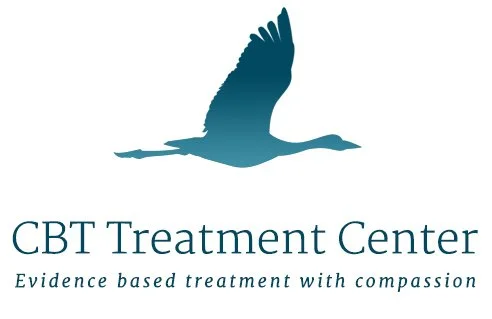
OCD Support for Families
Are You Overwhelmed Trying To Support A Loved One With OCD?
As a family member of someone who suffers from Obsessive-Compulsive Disorder (OCD), are you at a loss about the right way to support them? Does watching them struggle to get through each day leave you feeling frustrated and helpless? Do you wish you knew how best to help them navigate through the fear they face so that the life you share was no longer controlled by OCD?
Perhaps the most frustrating challenge you face as a parent or partner of someone with OCD is your desire for your loved one to live more comfortably—if only there was a way they could be unencumbered by the rituals and compulsions that often keep them trapped in isolation and fear. Unable to address their worry, you may feel as though you have no other choice than to aid and abet their behavior, all the while wondering if doing the things they ask of you will ultimately make their OCD worse.
Living With Someone With OCD Affects You, Too
When you live with an OCD sufferer, you’re always waiting for the other shoe to drop. Avoiding what they fear—such as traveling or germ contamination in restaurants—could be impacting the quality of life you have together. As their world shrinks around them, so does yours. You might be increasingly frustrated by how your loved one’s OCD limits what you can do together as well as how much emotional pain it causes them.
You can’t ignore the fact that OCD is also controlling you. If only you knew how to support your loved one in their quest to break free from OCD. Fortunately, OCD support for families, including parents and spouses, provides you with the support you need to help your loved one.
There Is No Handbook For Families That Explains How To Support A Loved One With OCD
Living with someone with OCD can feel like there’s a bully in charge who controls the entire household. Because our loved one is at its mercy, we’re the ones who have to decide how to respond. Perhaps they’ve asked us to change our clothes the moment we walk in the door to avoid contamination. If we comply with the rituals, it will keep the peace in the short term, but it’s hard to know if “feeding the beast” is ever the right thing to do.
According to the International OCD Foundation, “Research shows that how a family responds to the OCD may help fuel OCD symptoms.” Also known as Family Accommodation Behaviors, family members often choose the path of least resistance and go along with demands. Unfortunately, accommodating OCD behavior—by changing established routines, helping, or participating in the behavior—can make the unwanted behavior even more entrenched.
A Family Member’s Dilemma
When we see our loved one living this way, it’s hard to watch them suffer. Their pleas for us to help them can be overwhelming. We feel as though we have to help them even though we know what they are asking is irrational. Going along with their demands is detrimental but, conversely, so is callously telling your loved one to suck it up. When neither choice seems like a good option, we often continue to walk on eggshells with no clear action plan.
That’s why for family members, understanding how OCD affects your loved one is so important. By learning how to give your loved one the right kind of help, you can proactively support their journey to wellness.
OCD Support For Families Offers Guidance And Peace Of Mind
When your child asks us to please help them just one more time avoid their fear, it’s so hard to say no. OCD support for family members teaches you what to say and how to help your child or spouse when OCD fears challenge them. With OCD support for parents and spouses, you will feel better about no longer enabling your loved one because you will be equipped with a sound strategy for how to address their OCD without conceding to demands.
To provide your loved one with the proper support, receiving education about OCD is key. For family members, understanding how OCD is maintained and how, at times, the actions you take can make it worse will help you set limits, maintain boundaries, and avoid engaging with your loved one’s OCD behavior. By consistently reducing accommodations and offering reassurance, the fear and anxiety they currently experience will gradually dissipate.
What To Expect In Sessions
OCD family therapy can be held with caregivers only, jointly with your loved one, or a combination of both depending on your family’s needs. You might address your questions and concerns within a few sessions or realize that you need ongoing support to work through reducing the accommodations that are currently in place.
Ideally, your loved one with OCD will be open to attending sessions individually as well as with you. However, if they are resistant to therapy, I encourage you to still attend OCD support for families without them. Demonstrating to them that you are seeking OCD family therapy will help them realize that you’re supporting them no matter what they decide to do.
SPACE Treatment Teaches Families The Right Way To Be Supportive
Supportive Parenting for Anxious Childhood Emotions (SPACE) is an evidence-based treatment aimed at reducing parent accommodation in OCD and anxiety. Research has shown that even without your loved one’s participation in therapy, they can still experience a reduction in OCD symptoms by just reducing family accommodations.[1]
We usually start with the least challenging behaviors and work our way up to the more challenging ones. In addition, together we will devise contingencies so that when the accommodations decrease, you will know how to handle the resulting anxiety from your loved one.
If your child or spouse is also receiving individual therapy for OCD, such as Exposure and Response Prevention (ERP), I will help you understand how it works so that you can support what your loved one is doing in therapy when they’re at home. And if you’re feeling anxious or depressed as a result of your loved one’s OCD, family therapy can provide you with helpful coping skills.
Just because your child or spouse has OCD doesn’t mean you have to walk on eggshells or put your life on indefinite hold. Learning how to make decisions that best support you and your family will give you the boost of confidence you need to navigate the challenges of OCD so that it no longer controls your family.
But You May Wonder Whether OCD Support For Families Is Right For Your Family…
As a family member, I feel helpless. Is there anything I can really do to help?
Studies have shown that when family members enable OCD behavior, it will grow and get stronger. As the behavior becomes more entrenched, the demands multiply. When family members work with an OCD therapist, they will learn what to say and how to respond to the demands and requests that are placed on them. Once families receive support for helping their loved one with the management of their OCD, it can be remarkable how soon behaviors—even those seemingly resistant to treatment—begin to diminish.
OCD seems like a tangled web—how do I help my family member escape it?
Understandably, you might feel helpless to do anything to aid your loved one in recovering from OCD. However, by reducing the accommodations that are asked of you, you are helping your loved one by demonstrating to them that what they fear doesn’t actually happen. While it can be hard taking away the accommodations they rely on, we will discuss how to have these conversations with your loved one and what to do to help them transition more smoothly.
Will getting support for family members help my loved one with OCD?
You may think that getting your loved one the treatment they need is the only way they will get better. While it’s true that individual therapy for OCD is vital, so is ensuring that families also receive the support they need. Because family members play a role in how OCD behavior is handled, understanding how your actions may exacerbate symptoms can be a key component in helping reduce compulsions and habits. And even if your child is resistant to the idea of therapy, research suggests that “parent-based treatments may provide another effective strategy for childhood anxiety that can reduce anxiety in children.”

OCD No Longer Has To Rule Your Household
Receiving family support can turn the tables on OCD. To schedule a free consultation to learn more about OCD support for families, please call (424) 262-2014 or visit our contact page.



